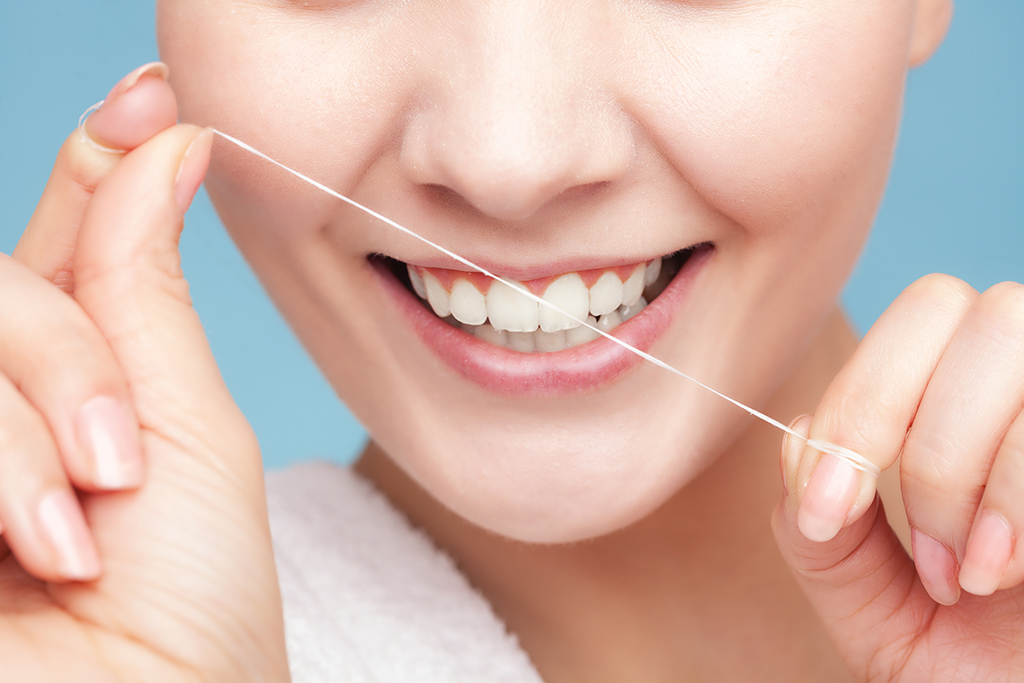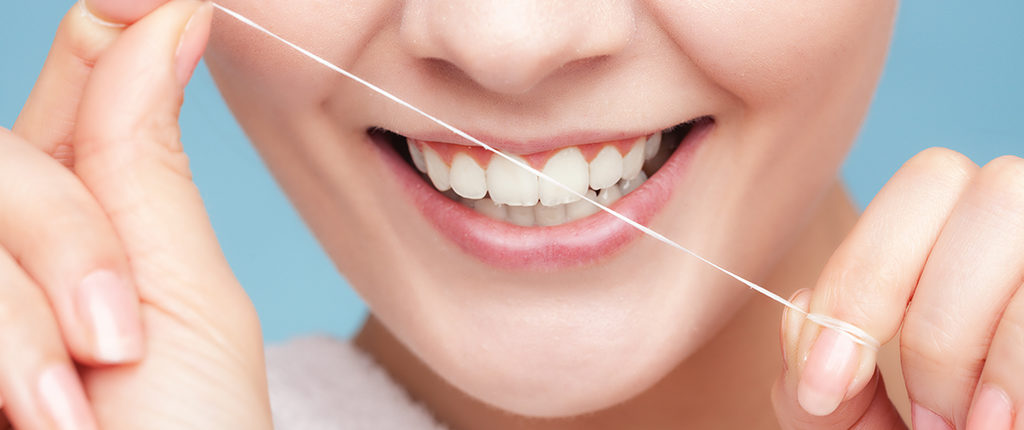
Every six months, many of us go to the dentist for a cleaning. At some point, they’re likely to ask, “Have you been flossing?” Some of us do, and some don’t as often as we should, but you’ll always hear your dentist and hygienist recommend it before you leave. For many people flossing is a difficult habit to keep because there is no instant reward for flossing. When we brush or use mouthwash, we feel the difference of our mouths being clean, or we taste the difference from our breath-freshener of choice. With flossing, though, we can’t always immediately tell the difference, and it’s easy to think it won’t make much difference.
But think of it this way: every tooth has five sides. There’s the front, back, top, and sides. If you’re only brushing, you’re only getting to three of them. Flossing is the best way to clean the sides of your teeth, keeping your whole mouth fresher. Another important part of flossing is that it can help prevent gum disease. This is important because gum disease attacks the bones supporting your teeth, even affecting the bones in the lower third of your face. Keeping extra bacteria away and preventing gum disease can keep your smile looking youthful.
Flossing is also important because it helps remove plaque. This sticky film contains bacteria that eat leftover food and sugar in your mouth. That sounds good, except this process releases acid that eats away at your teeth and can cause cavities. Brushing alone doesn’t clean all of your teeth, so flossing is an important part of a complete cleaning of your mouth.
When you’re cleaning your teeth, it doesn’t help you to cut corners, and skipping that daily flossing can cause you a number of problems in the future. So, try to pick up this healthy habit, and the next time you’re at the dentist, you’ll be able to answer that question with a strong, “Yes!”
